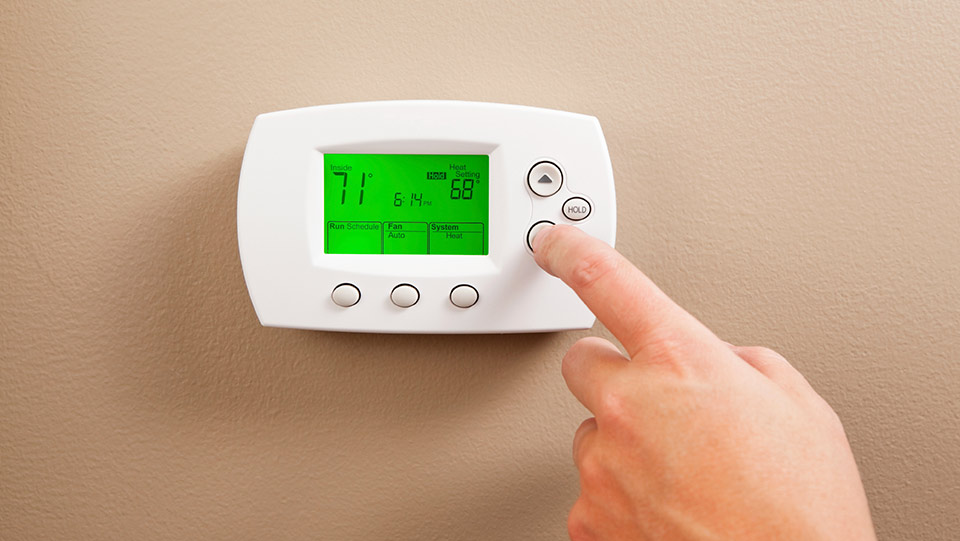How to Help Prevent Ice Dams

(SPEECH)
[MUSIC PLAYING]
(DESCRIPTION)
White umbrella on red background. Text, How to Help, Prevent Ice Dams.
Animated snow falls in neighborhood and piles up on homes. Ice blocks a home's gutter.
(SPEECH)
SPEAKER: Snow covered rooftops, a familiar winter scene for many. Unfortunately, when left on their own, snow icicles and ice dams can lead to serious damage to your roof and the inside of your house.
(DESCRIPTION)
Heat rises through a home's attic. Ice melts and flows down the roof to the gutters, where it re-freezes.
(SPEECH)
As heat rises up through the roof, it can cause a layer of snow and ice to melt. Without regular roof snow removal, the ice that develops may grow large enough to prevent water from properly draining off the roof. The water can then potentially back up underneath roof shingles and leak into your home.
(DESCRIPTION)
A roof rake pulls snow from the edge of the roof.
Truck with snowplow appears with text on its door, Contractor.
(SPEECH)
In order to help prevent them, use a roof rake to clear about 3 to 4 feet of snow from the edge of your roof after each winter storm. If you cannot reach the roof safely, consider hiring a contractor to remove snow from the edge of your roof. Visit travelers.com to learn more.
(DESCRIPTION)
The Traveler's Umbrella logo. Text, How to Help Prevent Ice Dams. Text, Copyright 2016. The Traveler's Indemnity Company. All rights reserved. Travelers and the Travelers Umbrella are registered trademarks of the Travelers Indemnity Company in the U.S. and other countries.
Taking precautions to prevent ice dams is an important part of preparing your home for winter weather. Knowing what an ice dam is, minimizing the conditions that allow one to form and removing an ice dam as soon as you spot one can help prevent serious damage to both the roof and the inside of your home.
Take action before snow starts falling
An ice dam may develop during the cold winter months if warm air from your home or attic melts snow on your roof. In freezing temperatures, the melted snow may refreeze once it reaches the colder edge of the roof. Keeping the temperature of your attic at 32°F or below can help prevent snow from melting and ice dams from developing. The following are some steps you can take to help prevent the snow melting-and-freezing cycle that often causes ice dams:
- Insulate your attic. Be sure your attic is properly insulated to help prevent warmth from escaping through ceilings. Whenever possible, an insulation value of R-40 is recommended.
- Prevent air leaks. Check and seal any openings where warm air or heat could escape into the attic, such as insulating or caulking around vent pipes, exhaust fans, chimneys, attic hatches and/or light fixtures.
- Improve ventilation. Increase the number or size of attic, roof or soffit vents that allow cold air to circulate and flush warmer air out during the winter.
- Install a water-repellent membrane. When replacing the roof covering, install a water-repellent membrane underneath the shingles. This acts as an extra barrier that helps prevent water from seeping inside the building should an ice dam form.
Tips to help prevent ice dams through the winter
Ice dams can sometimes form despite your best efforts to keep your roof at the proper temperature. Be sure to monitor the weather and maintain your roof throughout the colder winter months for additional protection against ice dams, such as:
- Clear gutters and downspouts. Prevent water from accumulating and possibly freezing in your gutters by cleaning leaves, debris and snow accumulation from in and around gutters and downspouts. Making sure that your gutters are properly pitched can also help prevent the collection of water in low spots and help reduce the potential for ice buildup in gutters.
- Remove snow accumulation from your roof after every storm. Whenever possible, use a roof rake to clear snow about three to four feet from the edge of your roof soon after each storm. Snow accumulation along the edge of your roof increases the likelihood of an ice dam developing, which prevents water from draining off the roof. This water can then back up underneath roof shingles and make its way into your home.
- Remove ice dams as soon as you spot them. Check your roof often and know how to help identify and remove an ice dam.
CAUTION: Avoid using a ladder in snowy and icy conditions. This can be extremely dangerous and is best left to the professionals.
We know there are many ways that things can go wrong at home. Learn more about the top causes of home damage.



